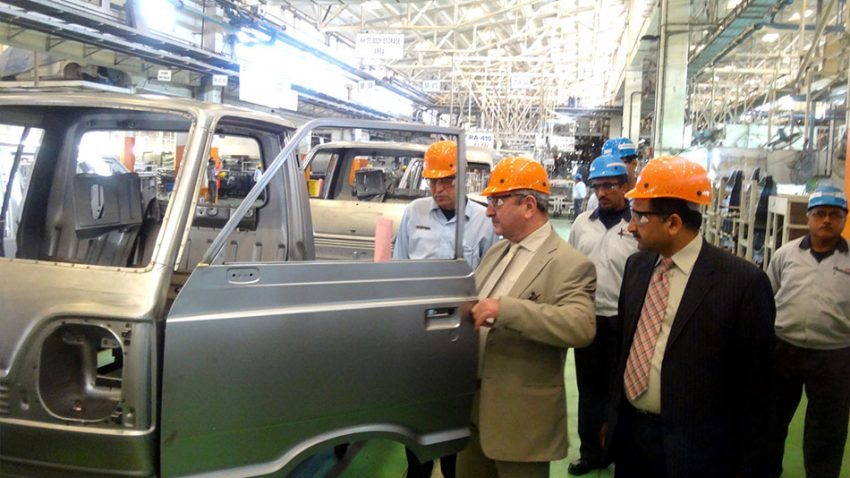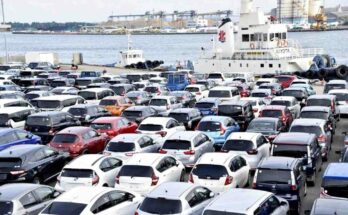Analysts and pundits in the automotive sector have urged policymakers to immediately implement a paradigm shift in order to revitalize the industry during this challenging period.
They presented a slew of proposals to boost the industry, including developing a 10-year consistent policy, activating the Pakistan Standards and Quality Control Authority (PSQCA), lowering taxes (which account for nearly 40% of vehicle costs), and encouraging small and medium-sized enterprises (SMEs) to export. To gain their opinions, The Express Tribune reached out to industry mentors.
Related: Auto Experts Seek Clear Vision for Growth and Diversification
The Chairman of the Pakistan Association of Automotive Parts and Accessories Manufacturers (PAAPAM) Abdul Rehman Aizaz said allowing imports of raw materials at zero duty and doing away with regulatory duties on all raw materials would ensure the availability of all necessary raw materials at regionally competitive prices, similar to India, China, and Turkey. He said:
“Policymakers must rationalize energy costs, minimize the high rate of financing, formulate a 10-year policy to increase the capacity and exports of auto parts, provide export rebates, and enhance the participation of the Pakistani auto parts industry in international exhibitions to promote local parts globally. And in order to discourage imports, the government should take a bunch of steps – stop smuggling and massive under-invoicing, activate PSQCA to curb substandard production and selling of parts, and reduce the sales tax to 5% for five years.”
Aizaz said consistent policies and incentives to original equipment manufacturers (OEMs) for meaningful localization could promote the local automobile industry. He said owing to mostly macroeconomic issues, the country lagged behind in all industries in comparison with neighboring countries. The industry was saddled with taxes and was paying the share of agriculture and retail sectors, he said, adding that almost 40% price of automobiles consisted of taxes, resulting in low volumes and keeping vehicles out of the reach of common people.
Related: Economic Advisory Group Says Auto Policy is Damaging for Consumers
He said the automobile industry was capital-intensive and needed volumes to sustain as Pakistan’s ratio of car usage per capita was the lowest in the region. Aizaz added that low-quality engineering education and a large number of PhDs at government expenses contributed almost nothing to industries.

Author and auto maven Murtaza Mandviwala asked to formulate an automotive export strategy with stakeholders as there was an auto export policy but no strategy. “Export focus should be on automotive parts and not passenger cars in a finished form because exporting cars is not feasible with the import duty structure of raw materials and components.” He said Pakistani automotive engineering and many other engineering industries depended on importing raw materials and components. Mandiwala said:
“You cannot sustain engineering industries, if you restrict their raw material and components’ import. Ban used car imports. By allowing used car imports, as an easy means of collecting customs duty, the regulators are promoting money laundering. The auto industry is the mother of all engineering industries. India and China are large and developed economies with a strong engineering base and locally produced raw materials. On top of that, a passenger car is made up of 12,000-20,000 components and 25,000 inputs. No country in the world has a totally indigenous passenger car. We are amongst the 40 countries of the world which has an automotive industry.”
Analyst and researcher Dr. Aadil Nakhoda said taking initiatives to jack up exports aimed to encourage a role of SMEs in exports, remove bureaucratic hurdles in trade, digitalize trade procedures and processes by better incorporation of Pakistan Single Window (PSW), scale down all import tariffs to eliminate anti-export bias and ensure currency movement according to expectations so that businesses could undertake international trading activities with reduced risks. He said:
“First, imports themselves are not necessarily bad. Imports at times of crisis do increase the balance of payments crisis. This is unfortunately due to the lack of productivity in Pakistan that fails to convert imports into exports through greater value addition. We should improve linkages between imports and exports.”
He said that the industry would be promoted once they provided better quality outputs at a competitive price, adding that the local industry required competition as that would improve the quality of output and increase their desire to innovate.
Related: Can We Settle the Localization Debate With This?
Nakhoda said there was a lack of innovation and inward-looking focus from policymakers. Firms have little desire to churn out products and improve quality because they are inward-looking. He said the trade in auto parts and accessories was not problematic if local producers could develop certain expertise as well as brands that could dominate in terms of regional or global market share.
Source: The Express Tribune

Responsible for delivering local & international automotive news.




